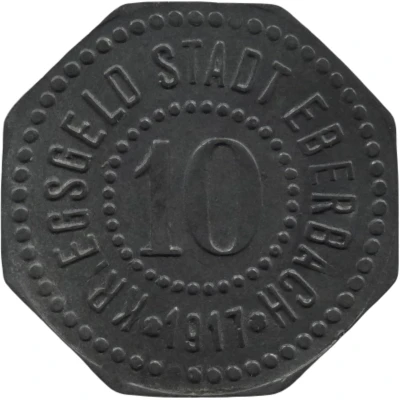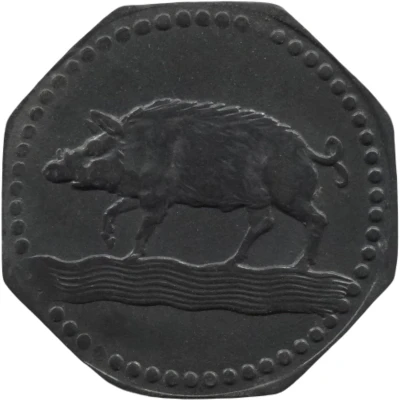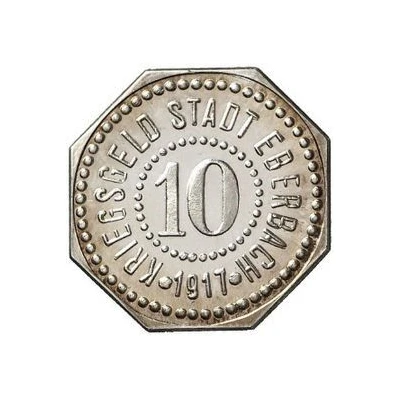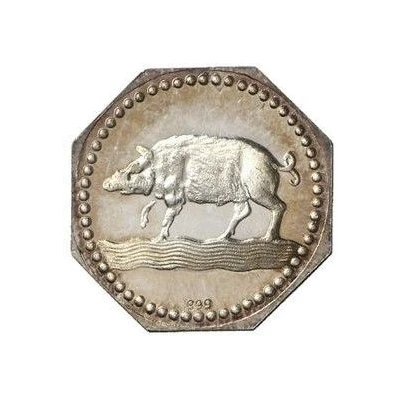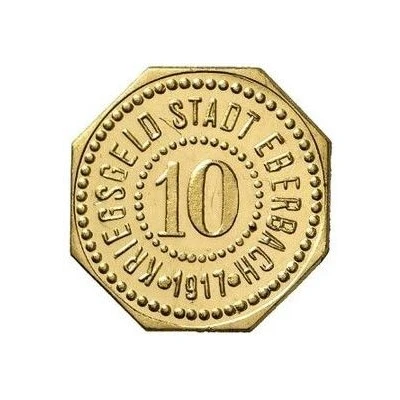
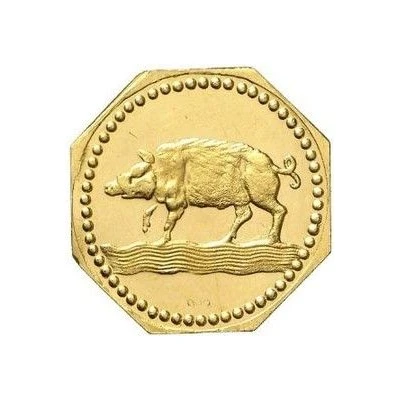

© Fritz Rudolf Künker GmbH & Co. KG, Osnabrück and Lübke & Wiedemann KG, Leonberg
10 Pfennigs Pattern
1917 year| Gold (.999) | 3.84 g | 20.8 mm |
| Issuer | City of Eberbach (Federal state of Baden) |
|---|---|
| Emperor | William II (Wilhelm II) (1888-1918) |
| Type | Pattern |
| Year | 1917 |
| Value | 10 Pfennigs (10 Pfennige) (0.10) |
| Currency | Mark (1914-1924) |
| Composition | Gold (.999) |
| Weight | 3.84 g |
| Diameter | 20.8 mm |
| Shape | Octagonal (8-sided) |
| Technique | Milled |
| Orientation | Medal alignment ↑↑ |
| Demonetized | Yes |
| Updated | 2024-10-04 |
| Numista | N#313048 |
|---|---|
| Rarity index | 97% |
Reverse
Boar to the left
Script: Latin
Lettering: 999
Edge
Plain
Interesting fact
One interesting fact about the Pattern 10 Pfennigs (Pattern) 1917 from City of Eberbach (Federal state of Baden) made of Gold (.999) weighing 3.84 g is that it was minted during a time of economic and political turmoil in Germany. The coin was issued in 1917, during World War I, when the country was facing severe economic challenges, including inflation and a shortage of valuable resources. Despite these challenges, the coin was made with high-quality gold, indicating the value and importance placed on it by the people of Eberbach. This coin serves as a unique piece of history, providing insight into the economic and political climate of Germany during this time period.
